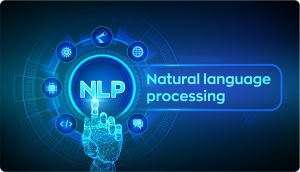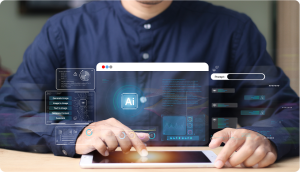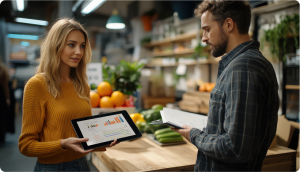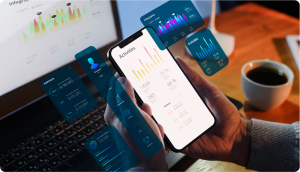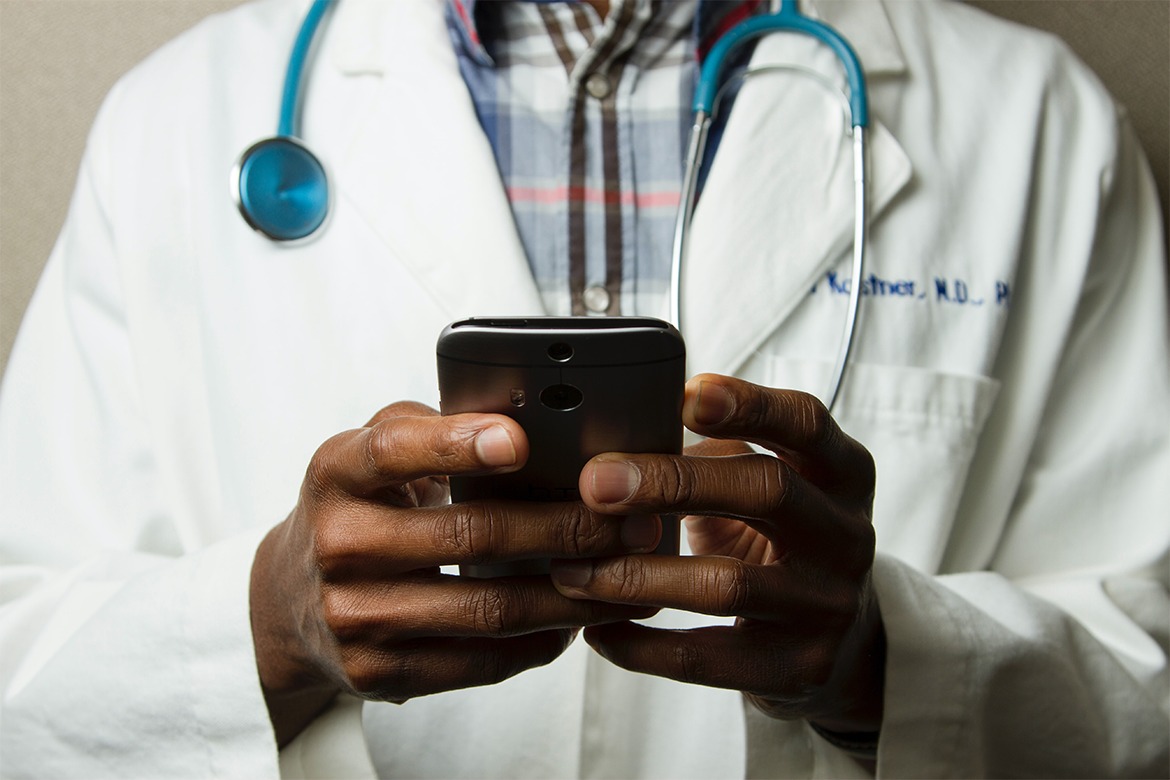
The healthcare industry in the US and globally reached an inflection point during the pandemic. More people went online to meet their medical needs when lockdown and visits to physicians were restricted. In fact, iTech developed a telehealth app in a record 2 months for their client, an American Healthcare non-profit organization, to meet the need for virtual doctor consults.
While 2023 is expected to see a slowdown in some cases because of the uncertain economy. Payers and providers will become more selective on tools that will enhance efficiency and patient support. These mobile app development trends will continue to gain traction.
Difference between health apps and medical apps that affect development
There is an important distinction between the two. Healthcare app development is usually the broad term that is used to describe the process of developing different kinds of apps to address a gamut of physical and mental health applications.
Health apps though are specifically for consumers only – they could be for weight loss coaching, fitness activity tracking, meditation, menstrual period tracking, etc. These health apps do not have the strict audit process that medical apps are subject to. They don’t need to be HIPAA secure apps as less medical sensitive data is shared on these apps.
A medical app though can be of two kinds patient interactions or mHealth apps and organizational apps. MHealth apps is usually an interaction between healthcare workers and patients. It can assist with diagnostic and treatment support. Telehealth apps or telemedicine apps, also known as virtual consultation apps fall into this category. The data collected through apps are used by medical personnel to track and monitor patients’ health conditions.
Not all medical apps need to be patient-facing. There are medical applications being developed that are improving the efficiency of hospital and clinic management as well as medical equipment management.
Since medical apps deal with sensitive patient details, privacy and security of data sharing are critical. They have to comply with HIPAA secure apps meeting strict data security requirements. This is why when developing medical apps, technology partners must be HIPAA certified.
All PHI data (Personal Health Information) must be secure and according to HIPAA regulations, every health app must adhere to them. Healthcare apps must encrypt data, use secure connections, and have two-factor authentication at the least.
IoT integration will increase the diversity of healthcare mobile apps
The Internet of things, more popularly called IoT devices connect to the internet and send data to the cloud. These devices can be mobile phones, wearable sensors like your Fitbit, or even your glucose patch. For instance, Continuous Glucose Monitoring (CGM) is now being marketed beyond the diabetic segment and becoming popular in the fitness and weight loss apps. Subscribers to mobile apps in the fitness market are opting for CGMs for monitoring the effect of their diet and exercise plans.
The Mayo Clinic during the pandemic used recovery apps to monitor their COVID patients during remote treatment as well as once they were discharged. The recovery kit came with a pulse oximeter, blood pressure cuff, and thermometer. Patient data was sent automatically to Mayo Clinic through a smart mobile device that patients received with their kit. While this was an innovative approach to the extreme medical situation of the time, it became the precursor to other innovations. For instance, elderly and patients suffering from chronic diseases could more easily be monitored by their physicians even from their homes.
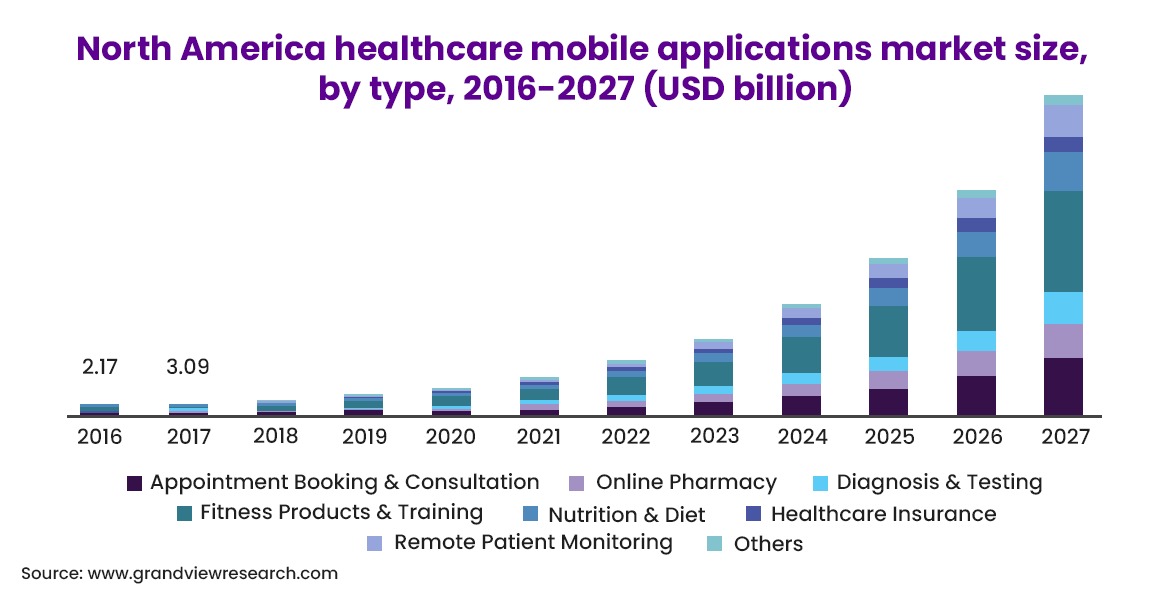
2023 application development will see more emphasis on personalized healthcare
The cost of delivering in-person consultations is continuing to increase. While telemedicine apps have seen a dip after the improvement of COVID conditions, it will continue to find new applications. As already mentioned, it will find importance in chronic patient management. It is also proving to be useful in remote healthcare in rural areas where it is difficult to reach a medical practitioner.
Personal health record apps are also being developed. These are different from health-tracking apps as they work as medical diaries. While they can be used to track medication and medical tests etc. they can also be integrated with doctor’s apps and can alert medical staff at the first symptoms of alarm. Femhealth applications will see more use cases.
2023 will also see the rise of digital therapeutics. These applications use hardware (eg. tracking monitors like CGM, blood pressure cuffs etc.), software development and data-driven services to offer personalized health advice. It will be particularly useful since it includes latest technologies like AI and ML and is evidence based and is clinically evaluated software. It is increasing patient access to clinically safe treatment where hospital visits can be reduced and advised based on data evaluated by their physician.
Also Read : How Data Analytics is Turning Around Employee Wellness Programs?
AI will improve healthcare organizational efficiency
Hospitals and health systems were faced with labor challenges in 2022. This makes integrating technology into back-office processes high consideration for healthcare organizations. A significant healthcare app development trend we will see is an increase in AI technology. By 2035, it is expected that AI-driven applications will have a greater involvement in managing early checkups, and other test programs like CT scans, Xrays, etc. Forbes has published that the market for artificial Intelligence, particularly machine learning tools, is forecast to reach $20 million in 2023. While this might not seem as high as in other industries, it is a start that indicates progressive growth.
Hospital management apps will be designed to be cloud-based and will automate accounting, outpatient management, patient preauthorization as well as inventory management. These apps will be developed to integrate with EHRs and will be available both on desktop as well as mobile apps so that staff is not limited to where they can work from.
Medical equipment management applications will track and automate much of manual stocktaking as well as equipment maintenance. Automatic scheduling and inventory alerts will reduce the manual hours that are spent on these processes.
Technology is rapidly changing and healthcare products can address critical gaps. iTech is an HIPAA certified healthcare mobile app development company with head office in Dallas and development center in India. Our proprietary EHR platform particularly serves the small and medium healthcare organizational needs. Contact us today, if you are looking for a trusted development provider!
